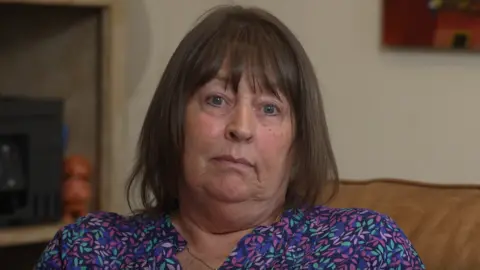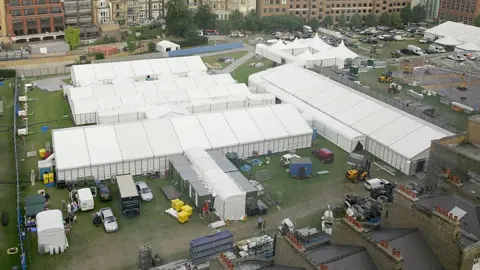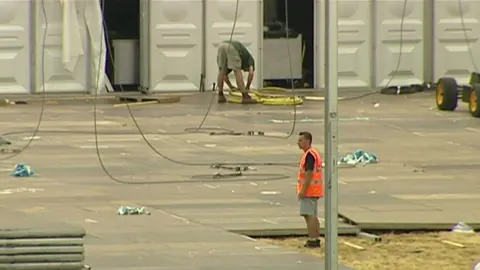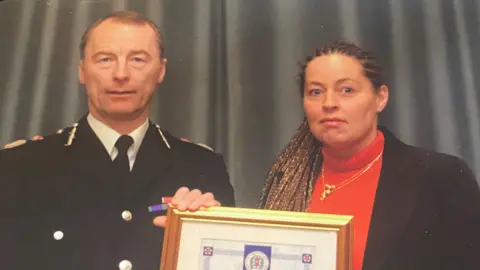Inside the 7/7 response: 'You just kept going'
 BBC
BBCIn the days after the London bombings, urgent efforts were made to identify the 52 victims. Twenty years later, the BBC hears what life was like for one of those tasked with helping.
Whendie Backwell was vacuuming her lounge when London's transport network was bombed.
It was the morning of 7 July 2005, and the Hampshire crime scene investigator had planned to tackle some household chores on her day off.
Then the phone rang.
A voice said: "Can you get to London?"
As she threw clothes into a suitcase, the TV was blaring in the background.
She said: "There was something on the news and that's when I thought 'this is a bad one'.
"I knew then that I probably wasn't coming home for a while."
 Getty Images
Getty ImagesHer day job was with Hampshire Constabulary, but Ms Backwell was also part of an anti-terror unit - a team of experts from across the country poised to help in an emergency.
She had received similar calls before, but this one had a more urgent tone to it.
When she arrived, the Metropolitan Police had already launched its mass disaster plan.
Within 24 hours, a temporary mortuary was constructed in the grounds of the Honourable Artillery Company in central London.
"It looked like something out of Star Wars," Ms Backwell said.
"It was like a temporary town full of white tents."
She was asked to oversee the work to identify the victims in the mortuary.
Within the expanse of tents were four separate pods - one for each bombing.

Terrorists had targeted tube trains at Edgware Road, Aldgate and Russell Square, along with a double-decker bus at Tavistock Square.
"You had to be careful that there was no cross-contamination," Ms Backwell said.
To achieve this, the bodies from each incident were kept apart until every forensic examination had been completed.
Their clothing, gender and rough age was recorded. A note was made of any tattoos. Jewellery and watches were removed.
Next, post-mortem examinations were carried out. Teeth were matched against dental records and fingerprints were taken.
Only then could each victim be moved to a central tent.
"Every body part had to have an identification, so that as much as possible could go back to families for closure," she added.
Meanwhile, about 4,000 names had been reported missing to the Metropolitan Police's Casualty Bureau.
"People are ringing in frightened because they've not heard from their loved ones," Ms Backwell said.
 Whendie Backwell
Whendie BackwellThe team was frantically feeding the information back to the bureau, working relentlessly long days, powered by coffee and energy drinks.
"Everyone really worked their socks off. There were days when I'd be thinking 'I don't think I can do another day of this'.
"But you get onto the site and something kicks in. You just keep going."
Ms Backwell's team were not always notified when they had helped match a body to a missing person because the results would be sent elsewhere.
'Never forget'
"Those people did not deserve to die. They were just ordinary people doing ordinary things," she said.
"And that's what kept you going, rather than results."
Eventually, each victim was identified, and Ms Backwell was sent home. The Met Police later awarded her a commendation for her work.
"It was weird afterwards going back to normal work for a while," she said.
Struggling with what she had experienced, she found it difficult to travel by train in the years that followed.
She would leave an extra hour for each journey in case she panicked and needed to get off.
"You saw and experienced things that no human should," she recalled.
"You never forget it."
If you have been affected by any of the details in this article, help and support is available at BBC Action Line.
You can follow BBC Hampshire & Isle of Wight on Facebook, X (Twitter), or Instagram.
